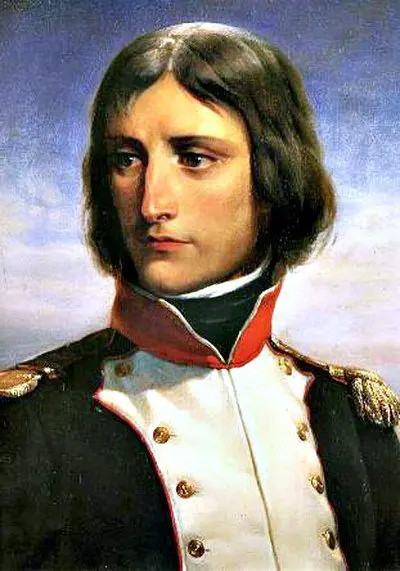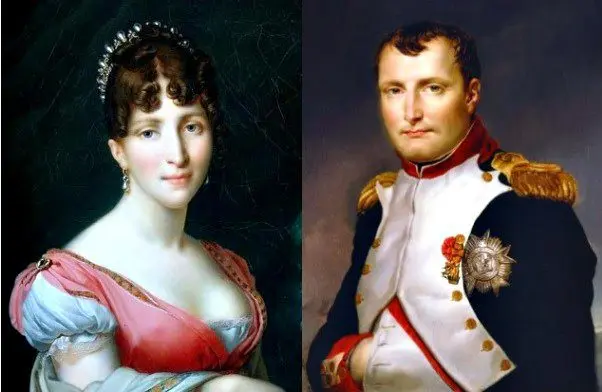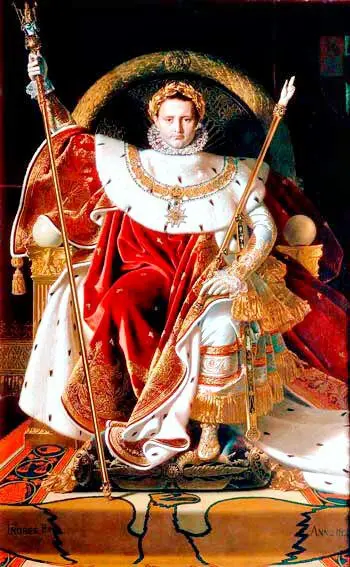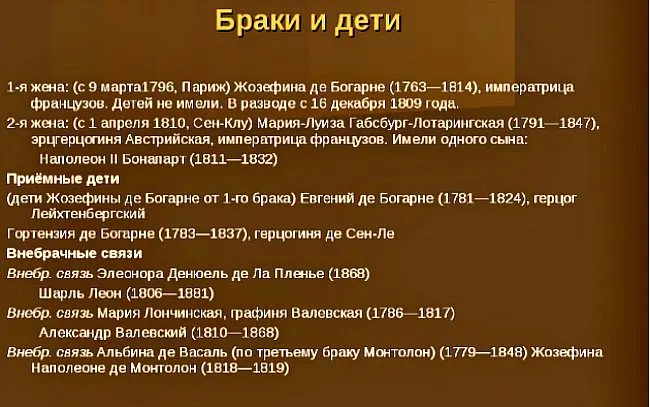Contents
😉 Greetings, history lovers! In the article “Napoleon Bonaparte: biography, interesting facts” – about the life of an outstanding figure in the history of the West. The information will be useful for high school students studying the topic “Napoleon Bonaparte: biography”.
Who is Napoleon Bonaparte
Napoleon Bonaparte (1769–1821) was a French military leader and political leader who came to power at the end of the French Revolution. He became Emperor of France in 1804 and undertook many reforms.
Among them was the creation of the “Napoleonic Code”, a body of laws that is still used today as the basis for civil law in many European countries.
As a brilliant military leader, he fought in a series of wars in Europe. But after suffering a crushing defeat at the Battle of Waterloo in 1815, he was exiled to Saint Helena in the South Atlantic, where he died in 1821. This man is remembered as a hero of France, a great reformer and a military genius.
early life
The future emperor was born on August 15, 1769 in Corsica, shortly after the island became French territory. His father, Carlo Buonaparte, was a lawyer who initially opposed the French occupation of Corsica. From the age of nine, the boy was educated in schools in the mainland of France.
In 1784-1785, the young man took a course at the Paris military school. During this time, his father passed away. The guy had to take care of his mother, brothers and sisters. Until 1796, he called himself (in the Corsican manner) Napoleone Buonaparte.
French Revolution of 1789
After graduating from a military school, Buonaparte was appointed second lieutenant in a training regiment. He spent several years in his native Corsica. At that time, the events of the Revolution, which began in 1789, were unfolding on the mainland of France.
On his return to France in 1791, he joined the Jacobin Club, a political organization that supported the revolution.

Napoleone Buonaparte in 1792
In 1792, the monarchy in France was abolished and a republic was founded. Many of the officers of the French army remained loyal to the king, but Napoleon’s sympathies were associated with the Republican cause.
Accordingly, he was quickly promoted to the army of the National Assembly (Republican Assembly). He had the opportunity to demonstrate his military prowess against royalist and British forces at the siege of Toulon in 1793.
In January 1793, King Louis XVI was executed. His wife Marie Antoinette soon followed. At 24, Napoleone Buonaparte rose to the rank of brigadier general in charge of artillery in the French army stationed in Italy.
Saving the revolution
In 1795, an uprising against the National Assembly took place in Paris. Buonaparte ordered his troops to defeat the rebels and thereby save the Convention and the republic.
He was awarded and promoted. He now advised the new Republican government, the Directory, on military matters and was promoted to Commander-in-Chief of the Italian Army.
He led his troops into battle against the Austrian and Sardinian armies, winning a swift and convincing victory over the king of Sardinia.

In the same year, Buonaparte met with Josephine de Beauharnais, the widow of an army general who was executed during the revolution. They married in March 1796, before he set out on a campaign in Italy.
French Revolutionary Wars
The commander showed his brilliant talent in military tactics and strategy in the campaigns of the French revolutionary wars. It was a series of conflicts between the French Republic and several European monarchies from 1792 to 1802.

“Napoleon at the Saint Bernard Pass, 1801”. Artist Jacques-Louis David
He forced Austria to sit down at the negotiating table and sign a peace agreement. He took control of northern Italy, including the independent republic of Venice. The members of the Directory wanted to carry out an attack on Great Britain.
But the great commander understood that it was impossible to invade Britain without gaining control over the seas.
Therefore, he decided to start a military campaign in Egypt. In this way, he hoped to threaten Britain by taking control of the sea routes linking it to the most important colony, India.
However, after winning in Egypt, Napoleon was defeated by the British fleet under the command of Horatio Nelson at the Battle of the Nile, which took place on August 1, 1798.
Consulate
In Paris, news of events abroad made the Directory unpopular. Napoleon returned to France in 1799 and joined the conspiracy that overthrew the Directory. Instead, a new government was created called the Consulate. Bonaparte in 1802 became the first consul and the most influential man in France.
The talented commander continued military operations. He won a brilliant victory over the Austrian army at the Battle of Marengo (1800). In 1802, he signed a peace treaty with Great Britain, which will go down in history as the Treaty of Amiens.
Emperor of France
Napoleon was opposed to the French Royalists, who were supported by the British government. Since all power was in the hands of one person, they feared that the republic would collapse if Bonaparte was killed. For these reasons, Napoleon decided to become Emperor of France.
This will be a hereditary title, meaning that if he dies, the title will pass to his heir. On December 2, 1804, Napoleon and Josephine were crowned Emperor and Empress of France at Notre Dame Cathedral in Paris.

Jean Auguste Ingres “Napoleon on the Imperial Throne”
Napoleonic wars
Although Britain signed a treaty with France, peace did not last, as expected, long. Britain was suspicious of Bonaparte’s desire to expand his empire eastward, as well as America and other countries. In 1803, the war between the two countries flared up again.
Bonaparte stationed his army on the northern coast of France in preparation for the invasion of Britain. The commander was restrained only by the understanding that it was necessary to urgently seize control of the seas.
Even the combined forces of the French and Spanish fleets were no match for the British fleet. In October 1805, Great Britain was victorious again at the Battle of Trafalgar off the coast of Spain.
Then Napoleon turned his gaze to Austria and Russia. He led the army inland, defeating the Austrians at Ulm in October 1805. In December, he united Austrian and Russian troops in the Battle of Austerlitz. As a result, many territories of Austria passed to France.
The defeat of Napoleon
Accepting the invasion of Britain as impossible, Napoleon attempted to gain power over Britain by destroying its foreign trade. Under the Continental System of 1806, European countries were prohibited from trading with Britain.
When the Portuguese government disobeyed the order, Napoleon’s troops invaded Portugal in 1807, and then into Spain, which was once its ally. Known as the Iberian Peninsula War, the conflict ultimately ended in 1814 with the defeat of Napoleon.
In 1812, the huge army of Napoleon, where there were many mercenaries from different countries, invaded the territory of Russia.
Having won the battle of Borodino, Napoleon entered Moscow. However, the lightly dressed soldiers could not endure the Russian winter with its bitter frosts and the army began to retreat along the old Smolensk road. Thousands of soldiers died from cold and hunger.
Death of Napoleon
The disastrous retreat from Moscow, together with the defeats in the peninsula war against Spain and Portugal, were serious setbacks for Napoleon. In March 1814, Paris joined a coalition of European powers, including Great Britain, Spain, Portugal, Prussia and Russia.
The emperor of France was forced to relinquish power. On April 11, he was sent into exile on the Mediterranean island of Elba, located off the western coast of Italy.
However, Napoleon did not want to admit the loss of power. In March 1815, he managed to leave the island for a short period known as “One Hundred Days”. He again dreamed of winning the fame and favor of the French. He gathered an army and marched into Belgium. There he again suffered a crushing defeat at the hands of the British and Prussians at the Battle of Waterloo.
In June 1815, he was exiled to St. Helena, actually being held captive by the British. Napoleon died on May 5, 1821.
PS
The great French army lost 380 thousand people. during the invasion of Russia in 1812, Russian losses amounted to 210 thousand soldiers and at least 200 thousand civilians.
An autopsy of Napoleon’s body revealed that he died of stomach cancer and ulcers. Modern research confirms that his hair shaft contained high levels of arsenic. The likelihood that he could have been poisoned. Although some substances from that period contained arsenic.
In the territories under his control, Napoleon freed the Jewish people, as well as Protestants in Catholic countries and Catholics in Protestant states, from laws restricting the right to reside in the area and freedom of religion.
In 1795 Napoleon wrote a short novel called Clisson and Eugénie. It was about a romance between a doomed soldier and his beloved. Probably, the content of the book boiled down to one of the experiences he himself experienced.
In 1803, Napoleon made a deal with the United States to sell the North American territories to France. It covered an area equal to 15 modern US states. The Louisiana Purchase was the largest (by area) transaction ever.
Napoleon: personal life
Zodiac sign – Leo. Napoleon’s height is 1,69 m.

Video
More information on “Napoleon Bonaparte: Biography”
Friends, if you liked the article “Napoleon Bonaparte: Biography”, share it on social networks! 😉 Check back for new stories! Subscribe to the newsletter of articles to your mail!










Сізге көп рахмет керекті мәліметтерді алдым